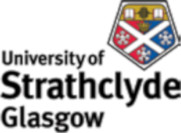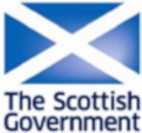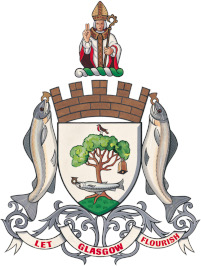
27th International Input-Output Association Conference
and
9th Edition of the International School of I-O Analysis
30th June to 5th July 2019, Glasgow, Scotland
|
|
Host Organisations
The Office for National Statistics in collaboration with the University of Strathclyde and the Glasgow Convention Bureau are eminently qualified to organise this prestigious conference. Their professional standing and that of their members and users is recognised by peer organisations across the globe and will contribute to the success of the first ever IIOA Conference in the UK.
![]() The ONS are the UK’s largest
independent producer of official
statistics and recognised as the
national statistical institute. ONS are
responsible for collecting, analysing
and publishing a wide-range of
statistics in line with international
standards related to the economy,
population and society at national,
regional and local levels. ONS also
conduct the Census in England and
Wales every 10 years.
The ONS are the UK’s largest
independent producer of official
statistics and recognised as the
national statistical institute. ONS are
responsible for collecting, analysing
and publishing a wide-range of
statistics in line with international
standards related to the economy,
population and society at national,
regional and local levels. ONS also
conduct the Census in England and
Wales every 10 years.
ONS are independent of ministers and report through the UK Statistics Authority to Parliament and the devolved administrations of Scotland, Wales and Northern Ireland. ONS are the executive office of the UK Statistics Authority, who are responsible for promoting and safeguarding the production and publication of official statistics which serve the public good.
ONS priorities for the future evolution, measurement and understanding of economic statistics cover the following themes:
- Modern economy and the National Accounts
- Trade and international statistics
- Devolved, regional and local statistics
- Productivity and the supply of labour and capital
- Prices
- Beyond GDP – broader measures of welfare and activity
Alongside these, ONS continues to horizon scan for new issues, and research new specification or methodologies for us to use in new or improved statistics.
The 2019 IIOA Conference will cover many of the above themes.
 The University of Strathclyde was
founded in 1796 and has a rich
history of teaching and innovation.
Located in the centre of Glasgow,
Scotland's largest city, we are home
to over 22,000 students from over
100 countries. Winners of seven
Times Higher Education Awards in
seven years, including University of
the Year 2012 and Business School
of the Year 2016, we have a world-wide reputation for teaching and
research excellence. Together with
our partners, we are at the forefront
of international research and
development in our strategic themes.
These themes bring together our
research, teaching and innovation
strengths from the whole University.
Modern complex challenges need
multi-disciplinary approaches, and
our thematic approach enables us to
bring the right teams together.
The University of Strathclyde was
founded in 1796 and has a rich
history of teaching and innovation.
Located in the centre of Glasgow,
Scotland's largest city, we are home
to over 22,000 students from over
100 countries. Winners of seven
Times Higher Education Awards in
seven years, including University of
the Year 2012 and Business School
of the Year 2016, we have a world-wide reputation for teaching and
research excellence. Together with
our partners, we are at the forefront
of international research and
development in our strategic themes.
These themes bring together our
research, teaching and innovation
strengths from the whole University.
Modern complex challenges need
multi-disciplinary approaches, and
our thematic approach enables us to
bring the right teams together.
A few examples of Alumni of Strathclyde and its predecessors include: John Logie Baird, inventor of the first working television; Henry Faulds, physician, missionary and scientist who developed of fingerprinting; James Young, chemist best known for his method of distilling paraffin from coal and oil shales; and David Livingstone, explorer in Africa and medical missionary.
Our Support Partners
Working in partnership with the Office for National Statistics and the University of Strathclyde the following organisations are an integral part of the bid team.
 Voted Best UK Convention Bureau
for 12 consecutive years, Glasgow
Convention Bureau will be IIOA's one
point of contact in the city. Glasgow
Convention Bureau will offer IIOA
a wealth of free support to ensure
the success of the conference, full
details of which are outlined in page
number 44 of this document.
Voted Best UK Convention Bureau
for 12 consecutive years, Glasgow
Convention Bureau will be IIOA's one
point of contact in the city. Glasgow
Convention Bureau will offer IIOA
a wealth of free support to ensure
the success of the conference, full
details of which are outlined in page
number 44 of this document.
Recently named as the World’s Friendliest City by travel site Rough Guides and as Scotland’s largest and most vibrant city, Glasgow is one of the best equipped and most competitive conference destinations in the world thanks to its compactness, ease of access and can do culture.
![]() The Fraser of Allander Institute
at the University of Strathclyde
entered Scottish public life in 1975.
We are now a leading economic
research institute with over 40 years
of experience in finding practical
solutions to real-world economic
problems.
The Fraser of Allander Institute
at the University of Strathclyde
entered Scottish public life in 1975.
We are now a leading economic
research institute with over 40 years
of experience in finding practical
solutions to real-world economic
problems.
We undertake a mix of cutting-edge academic research alongside applied commissioned economic consultancy analysis in partnership with business, local and national government, charities and third sector organisations. The Institute has a long history in Input-Output analysis having worked with the then Scottish Office in the mid-1970s to develop the first Input-Output table and model for Scotland.
Our unique mix of staff experiences and backgrounds enables us to bring together cutting edge economic methods and techniques with practical policy making solutions and business strategies.
 The Scottish Government is the
devolved government for Scotland
and has responsibilities that
include: the economy, education,
health, justice, rural affairs, housing,
environment, equal opportunities,
consumer advocacy and advice,
transport and taxation.
The Scottish Government is the
devolved government for Scotland
and has responsibilities that
include: the economy, education,
health, justice, rural affairs, housing,
environment, equal opportunities,
consumer advocacy and advice,
transport and taxation.
The government was established in 1999 as the Scottish Executive under the Scotland Act 1998. This Act created the Scottish Parliament with powers to make laws on a range of issues. The Scotland Act 2012 gave further powers to the Scottish Parliament and to Scottish Ministers. These included the transfer of some significant financial powers to Scotland, including setting a new Scottish rate of income tax and establishing new borrowing powers.
Further powers were transferred to Scotland in the Scotland Act 2016 following the referendum on Scottish Independence in September 2014.
After a Scottish Parliamentary election, a First Minister is formally nominated by the Scottish Parliament and appointed by Her Majesty the Queen. The First Minister leads the Scottish Government, with the support of the cabinet secretaries and ministers. The civil service helps the government of the day to develop and implement its policies as well as deliver public services. This is headed by the Permanent Secretary who is the senior civil servant in Scotland leading over 5,000 people working for the Scottish Government.
 |
 |
 |
 |
 |
